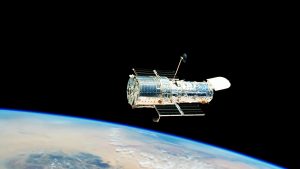2023 was a pivotal year for investments in space technology, with approximately $4.8 billion invested worldwide.
There have also been historic events in the space technology sector, such as India's Chandrayaan-3 moon landing, SpaceX's Starship developments, and mergers and acquisitions from companies like Maxar, Viasat, and Inmarsat.
Countries around the world have realized that investments in the space sector are critically important, as national and economic security depend on space systems.
The emergence of a new global space race has also sparked interest and competition.
With the Space Race well and truly booming, what space technology advances could happen in 2024?
Space technology: an evolving frontier of innovation
In today's world, countries rely more heavily on space as a mission-critical and evolving interface for information exchange and surveillance.
Many networks are now shifting from terrestrial (terrestrial) communications to cloud communications, using satellites to transmit data over long international distances.
Space technology plays a crucial role in national security by monitoring hostile threats and geopolitical movements in the form of satellites.
Given our increasing reliance on space, especially satellites, for communications, security, intelligence and business, satellites and space technology will become increasingly important in 2024.
What can we expect to see in 2024?
More strategic partnerships in the field of space technology
The year 2023 saw a significant increase in strategic partnerships in the space technology sector.
One example is the UK Space Agency's £20 million International Bilateral Fund, which has linked UK organizations with the US, Canada, Australia, Japan, India, Singapore, South Africa and others to form collaborations that will advance space research and stimulate investment in new technologies. .
The satellite communications sector is bracing for further consolidation as operators proactively fortify their defenses against looming threats posed by the “mega-constellations” of Starlink, OneWeb and Amazon Kuiper.
Consolidation expectations extend to the Earth observation sector, driven by dual forces.
Upgrading the earth observation market
In the face of increasingly extreme climate events that are disrupting life globally, careful monitoring of the Earth is more important than ever.

The development of satellite technology is facilitating a revolutionary era of space technology through data and analytics. Satellites play a pivotal role in monitoring and mitigating climate change and help us understand our planet better.
As governments and regulatory bodies intensify their focus on environmental transparency and sustainability reporting, companies and organizations must embrace data from advanced Earth observation satellites.
Thus, this regulatory momentum is expected to lead to unprecedented growth in the space technology market, promoting the development and deployment of cutting-edge technologies that facilitate more accurate, independent, and globally comparable measurements to monitor our planet's vital signs.
Countries will attempt missions to the Moon
2024 is set to be the year in which countries and space technology organizations will make a huge leap into the commercial lunar market.

Japan will pioneer in 2024 with the Artemis 2 mission, in which NASA astronauts will orbit the moon but will not land on the moon's south pole until 2025.
The Artemis program is a government-funded, commercially driven mission that sees NASA award contracts with established industry players like Lockheed Martin and NewSpace giants like SpaceX, Blue Origin, and Firefly.


